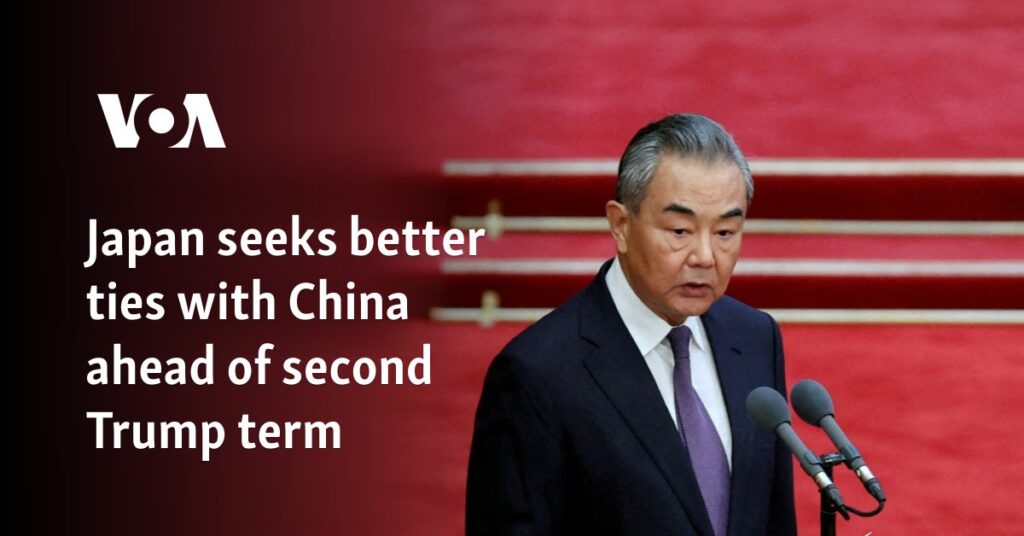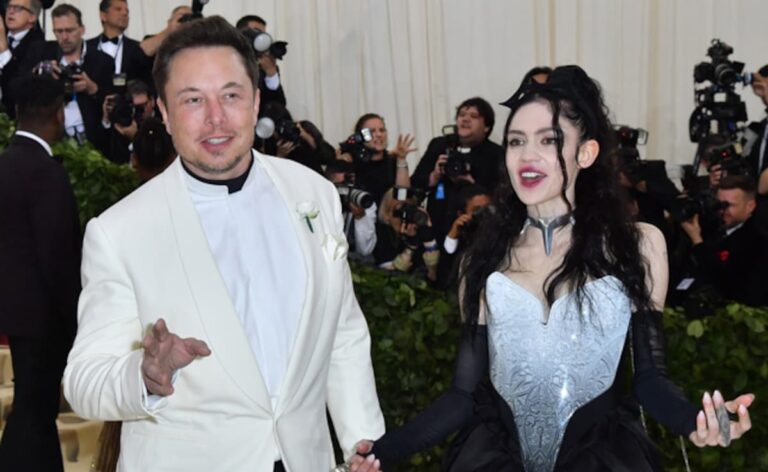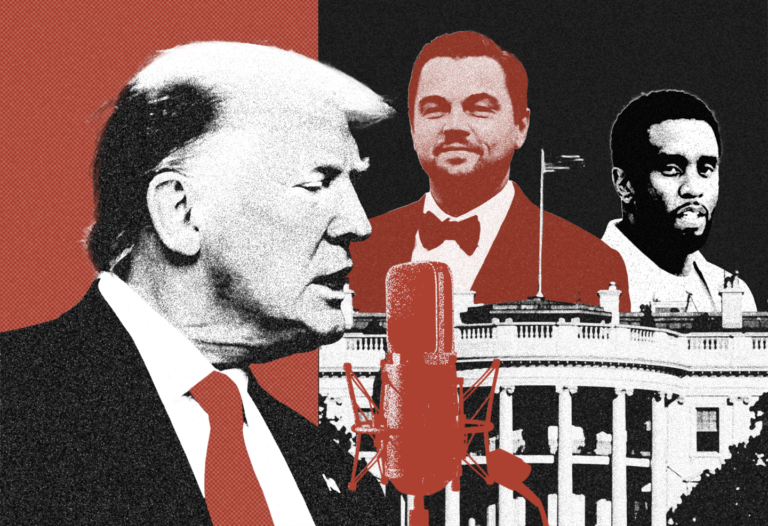
Japan and China are seeking to improve relations before US President-elect Donald Trump returns to the White House, but analysts say Beijing’s aggressive military activities across the Indo-Pacific will make it difficult for both sides to reduce long-standing tensions.
“Tokyo wants to have smoother relations with Beijing, given the potential turmoil in US-China relations as well as the broader global situation once Trump is in office,” said Ian Chung, a political scientist at the National University of Singapore.
“However, the fundamental positions of both countries are very far apart, and as long as Beijing continues to assert its claims in the East China Sea and demonstrates its ability to use military force to achieve these ends, it will be difficult for China and Japan to pursue this. Reset,” he told Voice of America by phone. Radical in bilateral relations.”
Japanese Foreign Minister Takeshi Iwaya met with Chinese Foreign Minister Wang Yi and Chinese Premier Li Qiang in Beijing on Wednesday. The two sides agreed to facilitate Wang’s visit to Japan in 2025 and improve relations at the basic societal level.
“China and Japan should also enhance people-to-people exchanges. “Enhance popular support for Sino-Japanese friendship, and properly handle disputes and disagreements,” Wang said on Wednesday, adding that Tokyo should “calibrate its strategic perception” and “pursue a positive policy toward China.”
While Beijing focused largely on the positive side of the meeting, Iwaya reiterated Tokyo’s concerns about increasing Chinese military activities in areas near Japan and the safety of Japanese citizens in China during his meeting with Wang.
Iwaya expressed Japan’s serious concern about the situation in the East China Sea. “Including the situation surrounding the Senkaku Islands and the intensification of Chinese military activities,” Japan’s Foreign Ministry said in a statement issued on Wednesday.
Despite these concerns, Iwaya and Wang agreed to hold a high-level economic dialogue and organize the Japan-China security dialogue to improve communication on security issues.
Experts say Japan believes it can extract “some positive goods” from China because of Beijing’s growing concern about the incoming Trump administration.
“Tokyo sees the Trump administration as potentially being very tough with China on tariffs and security issues, and they realize they may have a little more leverage now,” said Stephen Nagy, a professor of politics and international studies at International Christian University in Tokyo. , he told Voice of America by phone.
He said that since China remains committed to reshaping the security environment in the surrounding region, Japan is focused on securing short-term gains in improving relations rather than resetting relations.
“They believe there may be an opportunity to extract some positive goods from the Chinese, whether it is in business or increasing flows of people between the two,” Nagy added.
Countries object to emptying Fukushima
One of the main disputes between China and Japan is Tokyo’s discharge of treated radioactive wastewater from the damaged Fukushima nuclear power plant. Beijing has repeatedly opposed Tokyo’s move and imposed a ban on the import of Japanese seafood.
While the two governments agreed on steps that would allow stakeholders like China to independently sample treated water in September, Wang and Iwaya’s discussion on the topic showed no signs of easing Beijing’s import ban.
Wang reiterated China’s opposition to Japan’s discharge of nuclear-contaminated water into the ocean, stressing that Japan should fulfill its international obligations and commitments to China, establish a long-term international monitoring mechanism, and allow China to take samples and test independently. State-run Chinese tabloid newspaper Global Times reported on Wednesday.
Although China continues its ban on Japanese seafood, Nagy said China will still try to seize this opportunity to strengthen relations with Japan and potentially weaken relations between Washington and Tokyo.
“The Chinese government has a long record of using economic incentives to drive a wedge between Washington and Tokyo, but since Japan has seen these strategies for decades and the Chinese economy is in decline, whether Beijing’s efforts can translate into sustainable changes is a different matter. Story,” He told Voice of America.
The political scientist says Japan will prioritize relations with the United States
While Japan seeks to improve relations with China, Chung said in Singapore that the relationship with the United States will remain a priority for Tokyo once Trump returns to the White House in January.
“Tokyo will fall in line [with the U.S.] “As much as possible because the Japanese economy is closely linked to the American economy.”
During a press conference on Tuesday, Japanese Prime Minister Shigeru Ishiba said he wants Japan to strengthen its alliance with the United States.
“I believe it is important to further strengthen the US-Japan alliance… and share a common understanding of the situation in Northeast Asia,” he said.
Although the relationship with the United States remains a priority for Japan, Nagy said Tokyo will still try to influence how the competition between the United States and China develops under a second Trump administration.
He told Voice of America: “Japan will try to convey to Washington that its relationship with China is not simple because it cannot simply cut ties and over-securitize the relationship because Beijing is still a neighbor that will not disappear.”
Nagy added: “When Tokyo deals with the United States, it is a relationship of cooperation and coordination and an attempt to influence the decision-making process in Washington so that it does not take an excessive security approach towards competition with China.”






